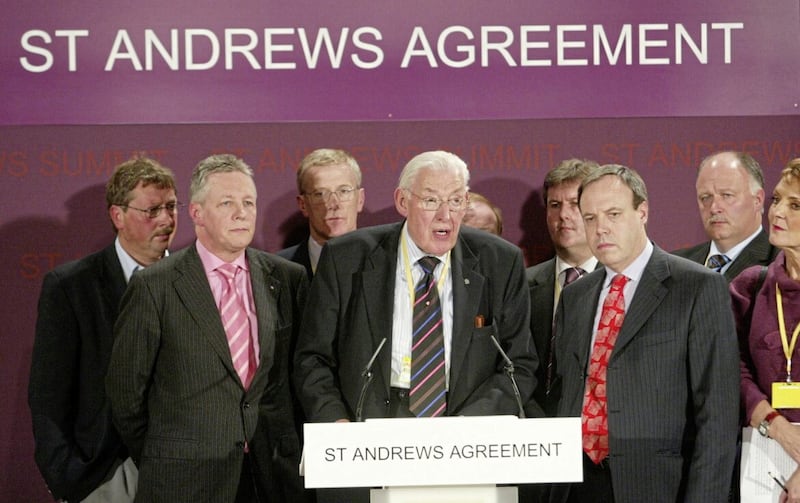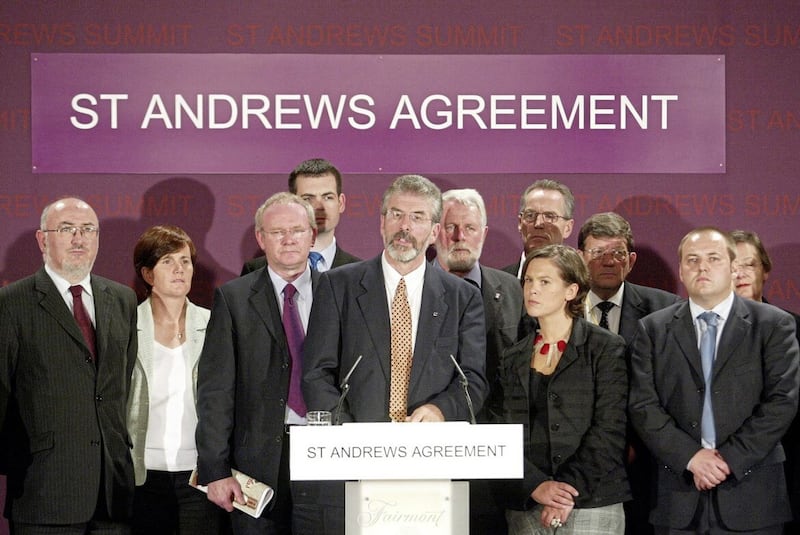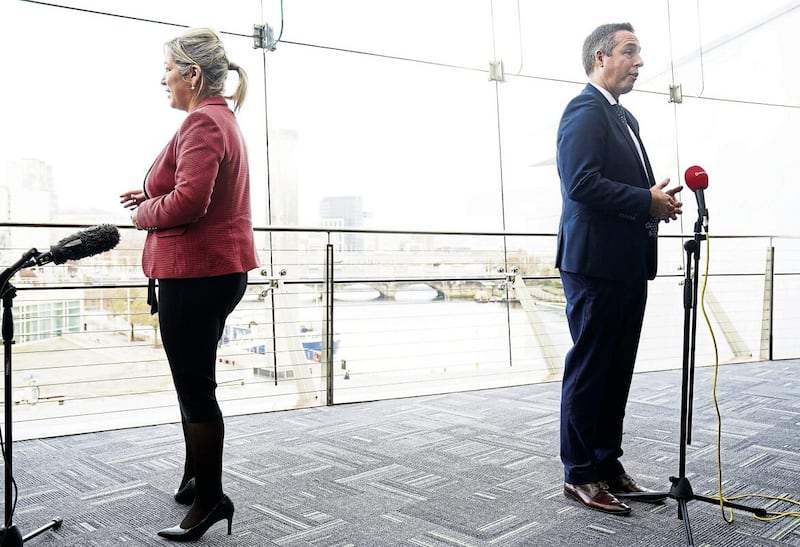DUP and Sinn Féin leaders and representatives, along with the bulk of their party members and voters, are very keen to blame the ‘other side’ for undermining power-sharing. The reality, of course, is that the DUP and SF worked very closely together to make power-sharing impossible.
Brian Feeney: The DUP never wanted to share power with nationalists
From the moment at the 2003 assembly election when both parties eclipsed their main electoral rivals, the UUP and SDLP, it became clear that there would be changes to the Good Friday Agreement and that those changes would be to the mutual political and electoral benefit of the DUP and SF. And no one else would get a look in.
Fair enough, power-sharing had barely made an impact between 1998 and 2003; largely because SF was prepared to leave the UUP out to dry on the decommissioning issue, while the DUP took every opportunity to condemn the ‘rollover unionism’ of David Trimble.
Both parties had serious concerns about the Assembly/Executive anyway; their primary aim being to make them operate in both their ‘ourselves alone’ favour rather than bend towards a genuine willingness to work together in common cause.
Read more:
- Alex Kane: The problem of the Stormont veto
- Alex Kane: Where is the new political middle ground?
- Brian Feeney: With their majority gone, what is the point of unionism?
Luckily for them Tony Blair (and, to a lesser extent, the Irish government) was quite happy to let David Trimble and Seamus Mallon swing. He had concluded, probably from the middle of 2000, that the UUP and SDLP didn’t possess the capacity to secure and grow a comfortable overall majority in the assembly. So, when the DUP and SF nudged by them in November 2003 – and some key UUP players defected to the DUP a few weeks later – Blair began a process of pushing them closer together.
It took a couple of years of tick-tacking between the parties to get them to the point where they were willing to go to St Andrews and nail down what would be enough to get them into the First and Deputy First Minister roles.


Those talks had nothing to do with the review which had been provided for in the GFA: a review intended to facilitate changes based on the evidence of a few years of the Assembly and Executive functioning. Instead, these changes were about DUP and SF priorities, in which a deal was built around the one-for-you-and-one-for-us principle.
Power-sharing was immediately killed off by changing the original rules and simply gifting the FM role to the largest party. This meant that every election would continue to be a headcount and, in so being, would prevent the growth of a new middle ground and the emergence of new parties.

In other words, it made life very much easier for the DUP and SF. There was no requirement to reach out to each other, or even govern consensually. What St Andrews did was place two governments, with competing and contradictory agendas, at the heart of government.
It also meant that neither party had any interest in facilitating an official opposition, regulating the terms and conditions for the use of a Petition of Concern, or ensuring that no one party could, without explanation or consequence, bring down the entire structures for as long as suited them.
They also ensured that there was no specific requirement to actually agree a Programme for Government, let alone take collective responsibility for it. The silo mentality worked very nicely for the two parties with the greatest number of Executive seats.
Read more:
- Alex Kane: The problem with Northern Ireland is that there is no solution
- Arlene Foster's idea of a referendum on Stormont reform deserves discussion – Newton Emerson
- Alex Kane: How can trust in our politics be restored?
The entire purpose of St Andrews was to cripple power-sharing. For how could power-sharing work when the basis for it became, in 2006/07, a carve-up between two parties who only wanted to bolster their own bases by creating distance rather than building bridges?
Had the DUP and SF done things differently in 2006, we might have been spared the serial crises, collapse and stand-offs which followed. But the fact of the matter is that serial crises suited – and still suits – their joint purposes: which is to be the largest party of their respective communities.
The ongoing mess lies on both their doorsteps.








